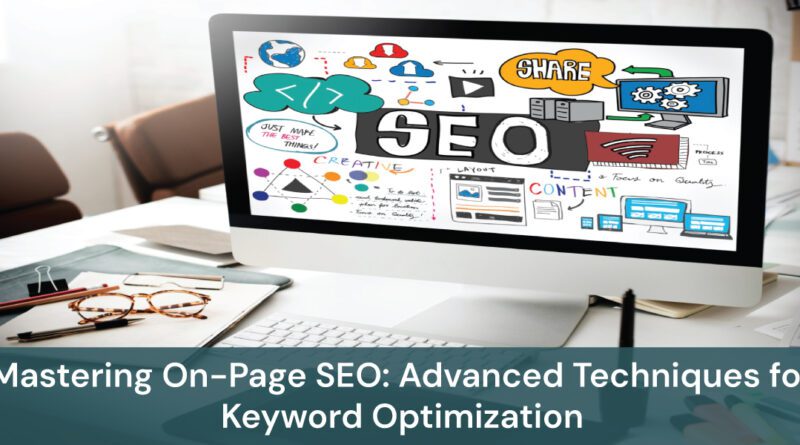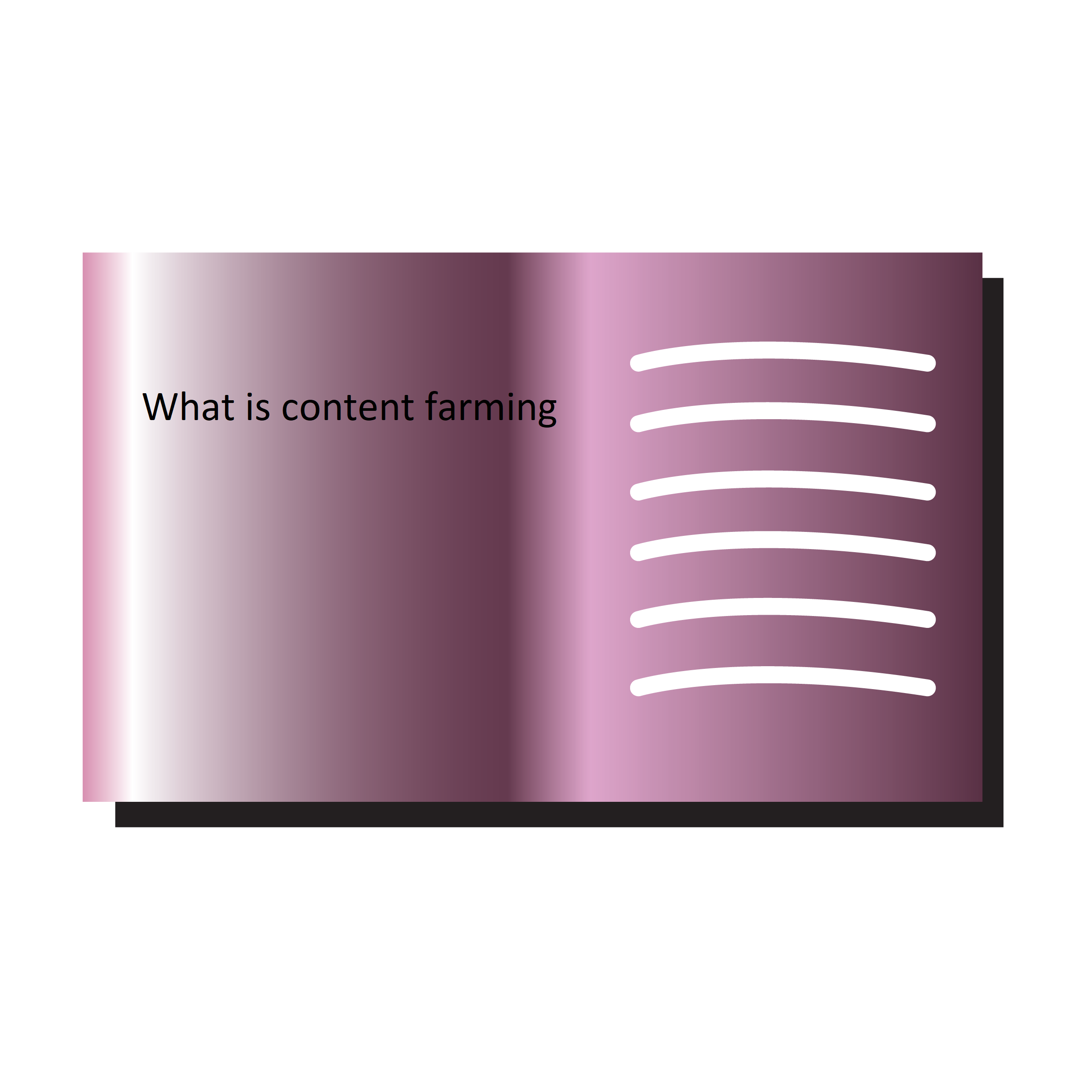Mastering On-Page SEO: Advanced Techniques for Keyword Optimization
On-page SEO with keyword optimization plays an important role in giving a brand a higher edge over other brands in search engine rankings. On-page SEO optimization is crucial for various reasons, as it significantly impacts a website’s visibility, relevance, and effectiveness in search engine rankings. It directly affects the way search engines perceive and position a website’s content.
Optimized elements such as meta tags, headers, and keyword usage contribute to better indexing and higher rankings on search engine results pages. Relevant keywords and other tags in the on-page SEO process can improve the content for the search engines and the user base. By creating more effective content for the user base, a brand can gain more popularity and visibility in the SEO and SERP landscape. In this blog, we are going to discuss the impact keyword and on-page SEO have on brands and their user base.
Why Does Keyword Research Matter in SEO?
Keyword research is crucial in on-page SEO as it forms the foundation for optimizing content to align with user search queries. Recognizing key search terms helps website managers and content developers grasp what their audience is looking for, aiding them in crafting material that aligns with and meets the needs of their users.
By incorporating well-researched keywords into on-page elements such as titles, meta descriptions, headers, and body content, a website increases its chances of ranking higher on search engine results pages (SERPs) for those specific queries. This strategic use of keywords not only enhances visibility but also ensures that the content is targeted and relevant, leading to improved user experience and engagement.
Moreover, keyword research helps uncover long-tail keywords and variations that can be integrated naturally into the content, capturing a broader range of search queries and attracting a more qualified audience. Overall, effective keyword research is a fundamental step in on-page SEO, optimizing content for both search engines and the user intent behind those searches.
The use of advanced keyword research tools and strategies can quickly get the right kind of keywords for your webpage. Digital tools and advanced research tools are available on the internet on a paid and free basis. Because of the high ROI that your brand gets from on-page SEO strategies, the use of paid SEO research tools is a profitable step for the brand.
Importance of On-Page Optimization Basics
On-page SEO processes depend on several basic optimization principles that attach a lot of importance to keywords, tags, headers, and optimized content. There is a lot of importance linked with the use of high-quality content relevant to your brand and its audience. The basic principles of on-page SEO optimization are as follows-
Keyword research
The SEO marketing team has to do complete keyword research for the brand and the products it sells. Moreover, keyword research needs to be targeted towards the search words that the audience uses on the internet.
Title Tags
Title tags give structure to a webpage and define its purpose. It is important to include keyword-rich and topic-related title tags for the webpage so that the search engine recognizes it.
Meta Description
The meta description of the web page is also an important component of the whole SEO framework. The meta description should be short but relevant, with focus keywords included in them.
Apart from these components, the URL structure, the header tags, and keyword placements also play a huge role in determining how the SEO optimization and results come out.
On-Page Advanced Keyword Optimization Techniques
Find Latent Semantic Indexing (LSI) Keywords
Latent Semantic Indexing (LSI) keywords encompass words and phrases closely connected in meaning to a main keyword or subject. These LSI keywords help search engines grasp the context and significance of content, going beyond mere exact match keywords. By incorporating these semantically similar terms, LSI keywords offer a deeper insight into the user’s intent, leading to content that is more contextually rich and relevant.
In keyword optimization, incorporating LSI keywords naturally within the content helps search engines recognize the breadth and depth of the topic being discussed. This approach makes the content more authoritative and can improve search engine rankings.
LSI keywords also contribute to a more user-friendly experience by ensuring that the content is comprehensive and closely aligned with what users are seeking. Including LSI keywords in a thoughtful and relevant manner enhances the overall quality and depth of content, ultimately benefiting both SEO efforts and the satisfaction of website visitors.
Keyword Variations and Synonyms
The keyword placement is very important for the optimization of the content. However, the keyword variations and synonyms are also important because you do not want too many repetitions of the same keyword. The art of SEO lies in not allowing keyword stuffing to happen but placing keywords strategically.
In this, keyword variations and synonyms are beneficial. The use of keyword variations enables the users to have a better experience and also helps in maintaining content novelty. The keyword variations can be used to adapt to the content algorithm when the time arises.
Incorporating keyword variations and repetitions is a strategic SEO practice that not only caters to the diversity of user queries but also aligns with search engine algorithms’ evolving sophistication. This approach enhances the overall quality, relevance, and visibility of your content, contributing to improved search engine rankings and a better user experience.
Keyword Density and Proximity
The metric of keyword density is a measure of how often a specific keyword pops up in a piece of content as compared to the complete word count. The keywords should also be spaced out evenly so that they are not too proximate to each other. Proper keyword spacing and density ensure that the content created has relevance to the audience and search algorithms. Excessive keyword stuffing leads to penalties from search engine algorithms. Moreover, the proper usage of the keywords creates a better reader experience and satisfaction.
Keyword Cannibalization
Keyword cannibalization occurs when multiple pages on a website compete for the same set of keywords. These pages should support each other but instead, these pages compete against each other across search engine rankings. This phenomenon can have negative implications for a website’s overall SEO performance.
The SEO team can reduce the chances of keyword cannibalization by conducting content audits from time to time. The team also needs to monitor the performance of the webpage and the content to ensure that keyword cannibalization is not happening. Using canonical tags can also help reduce cannibalization and the negative impact of keyword stuffing.
Content Structure and Formatting
Content format and proper layout of the web content with correct titles, headers, and subheaders is a must for an organized look. The use of proper headers and subheadings in the webpage and the articles can increase the readability of the content because it is easier to read content in small sections.
The use of small, simple sentences and the organization of content into paragraphs, subheadings, and snippets can improve the content structure for the readers and search engine algorithms. The content structure needs to be as per SEO guidelines so that the SEO tools can read the content and rank it.
On-Page SEO Tools and Plugins
On-page SEO tools are an important part of an SEO marketer’s toolkit. The SEO tools and plugins are many in today’s landscape. The SEO tools can be paid or free, but they help in keyword research and optimization. Some plugins can easily be integrated into the web workspace. For example, Yoast SEO, Surfer SEO, Ahrefs, SEMRush, etc., all have built tools that help in optimizing written content on different fronts. An SEO marketing team has to use these tools every day to be more productive and successful in their tasks.
Monitoring and Analyzing On-Page SEO Performance
The SEO marketing team has to observe the KPIs of the on-page SEO tactics to ensure that the SEO strategy is implemented properly. The SEO strategies have to be implemented and executed properly. The monitoring and analysis of the On-page SEO performance helps the SEO team tweak the strategy wherever needed.
The team has to look at the KPIs such as the keyword rankings, organic traffic rate, bounce rate, click-through rate, and even the mobile optimization parameters to ensure that the content is optimized and performs well across different search engines and devices. There are many digital and online tools used for the SEO monitoring process that are very successful in creating insights for on-page SEO performance.
Conclusion
The On-page SEO team of a company needs to focus on multiple fronts like keyword research, keyword placement, content optimization, and content audit to be successful in on-page SEO strategy implementation. The use of tools and techniques for advanced research and the use of tools for monitoring the results of on-page SEO strategy implementation also ensures that the company achieves its goals and expected results aligned with the initial SEO project. Investing in SEO strategies judiciously with ample investments can create scope for smart internet marketing of brands.
Written By:

Facebook: https://www.facebook.com/searchonic/
instagrm: https://www.instagram.com/searchonic/
Twitter: https://twitter.com/searchonic


